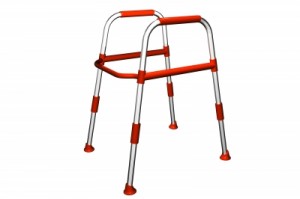Peripheral neuropathy is one of the earliest signs of vitamin B12 deficiency, causing an assortment of ailments such as painful tingling in the hands and feet, muscle spasms, and shortness of breath. Untreated, peripheral neuropathy from pernicious anemia, a common cause of low vitamin B12 levels, can result in severe irreversible nerve damage.
What is peripheral neuropathy?
Peripheral neuropathy is any type of nerve damage that occurs in the peripheral nervous system, impairing your ability to control bodily movements, in addition to involuntary reactions such as digestion, heart rate, and circulation.
What causes peripheral neuropathy?
Causes of peripheral neuropathy range from vitamin B12 deficiency or multiple sclerosis (MS) to diabetes, alcoholism, or autoimmune disorders.
Symptoms of peripheral neuropathy
Peripheral neuropathy can affect just one part of your body, or it can occur in many areas of your body at once.
Symptoms of peripheral neuropathy include:
- Painful tingling or burning (“pins and needles”) in the extremities- hands, feet, arms, legs, and mouth
- Slower reflexes
- Temporary numbness in the arms and legs
- Muscle fatigue
- Muscle spasms
- Feebleness
- Frequent tripping or dropping things
- Difficulty swallowing
- Diarrhea
- Vomiting
- Light-headedness
- Fatigue
- Heart palpitations
- Sweating
- Poor bladder control
- Infertility
(Also read: Pain and Numbness in the Arms- 13 Causes)
Health risks of peripheral neuropathy
Unless treated, peripheral neuropathy from vitamin B12 deficiency can lead to complete destruction of peripheral nerve cells, irreplaceable neurons that control arm and leg movement, balance, hearing, eyesight, heart health, and digestive system functioning.
Untreated peripheral neuropathy can result in mobility handicaps, including gait impairments, decreased motor control, muscle pain in the legs and arms, muscle spasms, partial paralysis, and difficulty remaining upright while sitting, standing, or walking.
Though pernicious anemia is no longer considered a mortality risk, there are still cases of infants subjected to vitamin B12 deficiency who have suffered fatalities from long-term untreated peripheral neuropathy.
How does vitamin B12 deficiency cause peripheral neuropathy?
Vitamin B12 (cobalamin) is an essential nutrient for your nervous system, as it helps to sustain myelin, a fatty substance that coats your nerve cells.
The myelin sheath protects your delicate nerve cell structures from outside harm, in addition to promoting fast, efficient intercellular communication within the nervous system. Without myelin, your nerve cells would be vulnerable to attack by harmful bacteria, viruses, or toxins.
Vitamin B12 deficiency-pernicious anemia is one of several demyelinating diseases that destroy myelin, causing symptoms of peripheral neuropathy- poor nervous reflexes, muscle pain, numbness, and shortness of breath.
To ensure that your myelin sheath remains functional, and thus avoid peripheral neuropathy, it’s important to sustain healthy levels of vitamin B12 at all times.
(Also read: Pernicious Anemia and Vitamin B12 Deficiency: Which Causes Which?)
Treating peripheral neuropathy
If vitamin B12 deficiency is the cause of peripheral neuropathy symptoms, then it’s crucial to replenish your vitamin B12 levels immediately. Most doctors recommend routine vitamin B12 injections in treating peripheral neuropathy.
For quicker results, pernicious anemia patients have the option of co-supplementing with over-the-counter (OTC) vitamin B12, as there is no upper limit for vitamin B12 dosage.
This is an especially good option when health insurance benefits cover only a minimal portion of vitamin B12, and fail to provide sufficient vitamin B12 supplementation to effectively cure peripheral neuropathy symptoms.
Please tell us…
Do you have any questions or suggestions? Please leave your comments below.
Share with your friends!
If you found this article helpful, then please share with your friends, family, and coworkers by email, Facebook, or Google+.
Like this? Read more:
Pernicious Anemia Awareness…Hello, Anyone?
Pernicious Anemia: Your 13 Most Frequently Asked Questions, Answered!
Sources:
Peripheral neuropathy- MayoClinic.com
Peripheral neuropathy- PubMed Health
Image(s) courtesy of FreeDigitalPhotos.net


